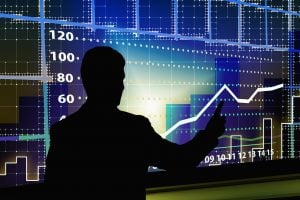By Cristian Bustos. Originally published at ValueWalk.

Recession in the U.S. has already begun, according to the economic analyst and founder of Euro Pacific Capital, Peter Schiff. The expert asserts the current recession will be worse than the one in 2008, and he points to the consequences of a financial bubble that will burst soon.
Recession In The U.S., A Reality
An economic forecast by The Conference Board establishes that the U.S. gross domestic product (GDP) fell 1.4% in the first quarter of 2022, after four consecutive quarters of growth in 2021.
Q1 2022 hedge fund letters, conferences and more
In an interview with NTD News, Schiff stated that in the first quarter this year the economy showed a negative performance. A recession is usually identified by the GDP falling for two consecutive quarters, which puts the U.S. at risk.
Among the reasons Schiff describes this recession as worse than 2008, there is the current inflationary environment, which did not exist 14 years ago. Likewise, the analyst points out that the government did not see that recession coming either.
“When we were six or seven months into that recession, the Fed and other economists were still saying there was no recession in sight,” he said.
“Americans are going to have the worst of both worlds: a recession worse than the Great Recession of 2008, plus worse inflation than anything we experienced during the 1970s.”
Recession In The U.S. And Higher Debt
Asked whether the positive economic outlook for banks today could ensure that this recession is milder than the one in 2008, Schiff argues that just before that financial crisis they believed banks were in very good shape.
“Banks are only in good shape until the value of their loan collateral collapses and people can’t repay their loans,” he said.
This time, the crisis will be even bigger because the economy has much more debt now than in 2008, and Americans are less able to pay it back when interest rates rise and debt balances are much higher.
“We are in a much worse situation as a result of all the bailouts and all the stimulus that covered up the last crisis.”
There is a remedy, he asserts, but it does not come without a cost. If the Fed doesn’t fight inflation on the grounds of avoiding a recession for the middle class and the poor, then these sections of the population would suffer even more from massive inflation.
Updated on
Sign up for ValueWalk’s free newsletter here.



